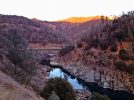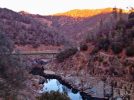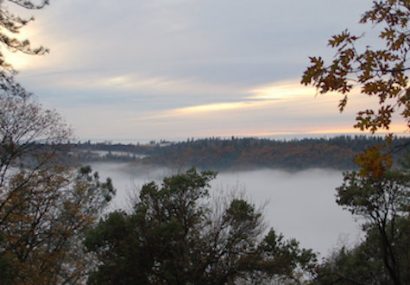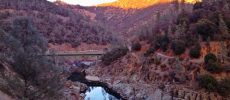By Evan Klouse and Micheline Nadeau Fairbank
At the end of May 2025, the Nevada Legislature voted to approve a new statewide voluntary water rights retirement program. This program follows up on a pilot initiative introduced in 2023.
Background
Throughout Nevada, over-allocated basins, over-pumping of groundwater, and declining water tables continue to pose a serious threat to the future of the state’s water resources. In the state’s previous legislative session (2023), a bill to create a formal water rights buyback program—SB 176—was approved by the Senate’s Committee on Natural Resources but never returned from the Committee on Finance. Instead, the Nevada Department of Conservation and Natural Resources (DCNR) kick-started its own pilot program with the objective of curtailing drawdown and aquifer impacts through financial incentives to water rights holders.
Pilot Program
In 2023, DCNR received $100 million of Nevada’s federal allocation under the American Rescue Plan Act. DCNR appropriated $25 million of these funds to launch and operate the Nevada Water Conservation and Infrastructure Initiative (“NWCII”), a program through which it successfully retired water rights in the amount of 25,000 acre-feet annually. The NWCII program received requests for buyouts to the tune of $65 million, demonstrating its potential as a serious solution to some of Nevada’s groundwater woes. Given the success of NWCII, legislators once again looked to establish a structured water rights retirement program.
Assembly Bill 104
Two bills aimed at implementing a more permanent voluntary water rights purchase system were introduced in the (current) 83rd Session of the Nevada Legislature. One of these bills, Assembly Bill (AB) 104, unanimously passed the Assembly on April 22, and then also unanimously passed the Senate on May 22. The Assembly concurred in the slight amendments adopted by the Senate on May 26, and enrolled on May 29 delivering the bill to the Governor.
The text of AB 104, as modified, creates the Voluntary Water Rights Retirement Program. Under this program, the State Engineer may use funds from an Account for Retiring Water Rights (also created under AB 104) to purchase decreed or certificated water rights from willing and interested owners. However, in order to prevent state funds from primarily benefitting the owners of unused “paper” water rights, the State Engineer may only purchase water rights if: (1) they are located in an over-appropriated basin in which the issuance of new water rights has already been suspended, or (2) the retirement of the water rights will (a) “Protect the natural resources of [the] State,” (b) “Address declining levels of groundwater,” or (c) “Address conflicts with existing rights or with protectable interests in domestic wells.”
While the bill does establish the structure for the water rights buyback system and a dedicated account in the State’s General Fund, it does not provide funding for the program. Noticeably, too, the program expires at the end of the 2035 fiscal year.
Senate Bill 36
A similar bill introduced in the Nevada Senate, Senate Bill (SB) 36, also would have created a Nevada Voluntary Water Rights Retirement Program, funded through an Account for Retiring Water Rights. The bill contained identical restrictions on the State Engineer’s purchase of rights to those found in AB 104: they must be from over-appropriated basins or meet the necessary findings of public benefit from protecting state resources, alleviating groundwater drawdown, or resolving conflicts. SB 36 was approved as amended by the Senate’s Committee on Natural Resources on April 15 and proceeded to the Committee on Finance, but no further action was taken on the bill.
Conclusion and Recommendations
AB 104 successfully passed in the 2025 Legislative Session, garnering unanimous support in both chambers of the Legislature as the Session draws nearer to the conclusion of its 120-day schedule. Despite the bill’s success (and even if it is signed into law), the Account for Retiring Water Rights implemented under AB 104 still requires funding to be effective. Nevadans, particularly those dependent on groundwater for agricultural or domestic purposes, will continue to monitor the enactment and implementation of AB 104, particularly with respect to its funding.









